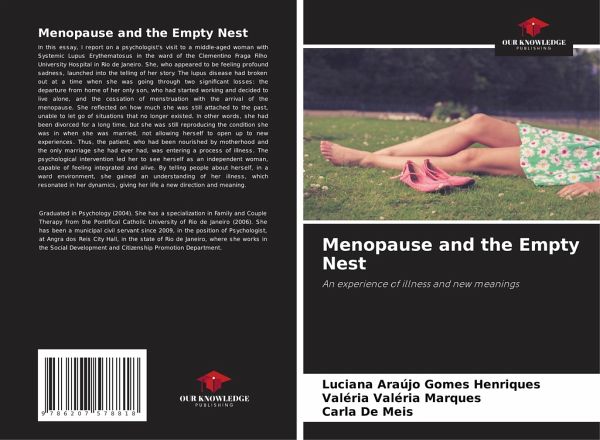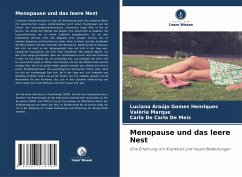
Menopause and the Empty Nest
An experience of illness and new meanings
Versandkostenfrei!
Versandfertig in 6-10 Tagen
22,99 €
inkl. MwSt.

PAYBACK Punkte
11 °P sammeln!
In this essay, I report on a psychologist's visit to a middle-aged woman with Systemic Lupus Erythematosus in the ward of the Clementino Fraga Filho University Hospital in Rio de Janeiro. She, who appeared to be feeling profound sadness, launched into the telling of her story. The lupus disease had broken out at a time when she was going through two significant losses: the departure from home of her only son, who had started working and decided to live alone, and the cessation of menstruation with the arrival of the menopause. She reflected on how much she was still attached to the past, unabl...
In this essay, I report on a psychologist's visit to a middle-aged woman with Systemic Lupus Erythematosus in the ward of the Clementino Fraga Filho University Hospital in Rio de Janeiro. She, who appeared to be feeling profound sadness, launched into the telling of her story. The lupus disease had broken out at a time when she was going through two significant losses: the departure from home of her only son, who had started working and decided to live alone, and the cessation of menstruation with the arrival of the menopause. She reflected on how much she was still attached to the past, unable to let go of situations that no longer existed. In other words, she had been divorced for a long time, but she was still reproducing the condition she was in when she was married, not allowing herself to open up to new experiences. Thus, the patient, who had been nourished by motherhood and the only marriage she had ever had, was entering a process of illness. The psychological intervention led her to see herself as an independent woman, capable of feeling integrated and alive. By telling people about herself, in a ward environment, she gained an understanding of her illness, which resonated in her dynamics, giving her life a new direction and meaning.














